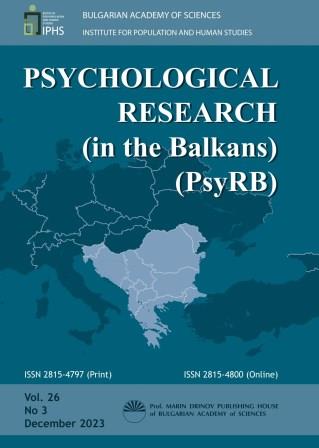RELIGIOSITY, EXPERIENTIAL SYSTEM AND COPING WITH STRESS: THEORETICAL PREMISES
RELIGIOSITY, EXPERIENTIAL SYSTEM AND COPING WITH STRESS: THEORETICAL PREMISES
Author(s): Maria IvanovaSubject(s): Philosophy, Social Sciences, Psychology, Philosophical Traditions, Personality Psychology
Published by: Институт за изследване на населението и човека - Българска академия на науките
Keywords: Cognitive-experiential Self-theory; constructive thinking; religiosity; coping.
Summary/Abstract: The paper aims to analyze the theoretical premises of research on the link between religiosity and experiential system concerning coping. A lot of empirical data confirm the impact of religiosity as an individual characteristic on coping with stress. Mainly, the research considers the findings in the context of Lazarus’s psychological stress theory and suggests that religious persons apply specific coping strategies which positively or negatively affect mental health. Only a few explore the role of religiosity in the context of Cognitive-experiential self-theory (CEST), which focuses on the adaptive function of implicit beliefs operationalised in the construct of Constructive thinking. At the same time, recent surveys have indicated a negative relationship between constructive thinking and perceived stress. Also, CEST establishes the similarity between the cognitive-experiential system and religiosity and motivates scientific research in this field. However, the question “How am I religious” or which religious attitudes are resourceful or harmful in overcoming stressful situations remains open-ended. Exploring religiosity’s impact on coping in the Cognitive-experiential self-theory paradigm could enrich understanding of the adaptive and non-adaptive religious coping mechanisms.
Journal: Psychological Research (in the Balkans)
- Issue Year: 26/2023
- Issue No: 3
- Page Range: 278-288
- Page Count: 11
- Language: English

